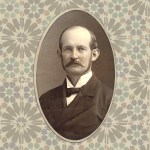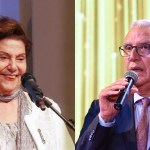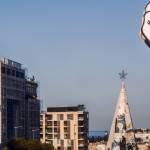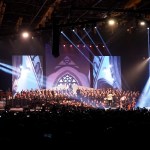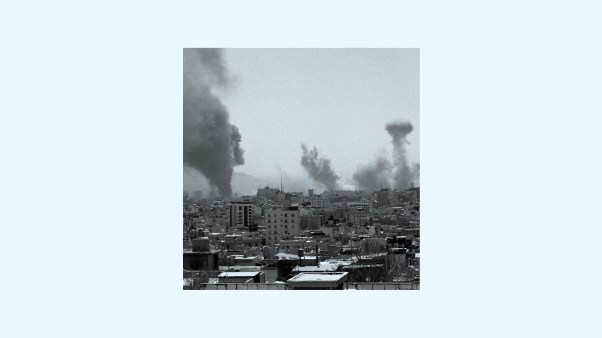This is the second part of a three-part series about the problem of sectarianism in the Middle East and how the interfaith group, Adyan Foundation, seeks to pave a new path in Lebanon and Iraq. Read part 1 here.
In September 2024, when Israel escalated its bombing campaign against Hezbollah in Lebanon, Shiite sheikh Rabih Koubayssi was one of the few clerics, Muslim or Christian, to stay in the targeted southern region. He was needed to bury the dead.
His first Islamic duty was to wash the bodies, which were often charred or missing a limb. He laid the body on an elevated table, turned it to face Mecca, and washed each part three times. Then he wrapped it in a burial cloth. Finally, he recited a Muslim prayer for Allah’s mercy. Assistants enclosed the body in a green bag, the color of Islam. He wrote the person’s name on the outside with a black marker.
On one occasion, a woman clad in an all-black abaya tossed flowers onto the hospital gurney carrying her dead father and brother. On another, Koubayssi discovered the body belonged to one of his students at the Islamic university.
Then on October 9, 2024, a Christian body arrived. Israel had bombed a civil defense center in the village of Derdghaya, damaging the church next to it. The strike killed five emergency workers, including Joseph al-Badawi, who had sent his parents and wife to safer areas while he remained on the job.
“How do I respect a Christian body?” Koubayssi asked himself.
The sheikh, a member of the Supreme Islamic Shiite Council of Lebanon, called Marious Khairallah, a Catholic priest in a village near Tyre who had also stayed behind during the war. The two had worked together in the local Forum for Religious Social Responsibility, run by Adyan Foundation, a Beirut-based interfaith organization.
Although the Christian cleric was only 10 minutes away by car, he could not come because of the bombings. Instead, he reassured his friend that Christians do not have similar rituals and that he should take care of the body as best he could.
Koubayssi wiped down Badawi’s body, leaving on the tattered clothes. He struggled to enclose the corpse in nylon as rigor mortis had steeled the right arm in a raised position above the head. Eventually, during a pause in the bombing, the sheikh and priest arranged to deliver a Christian coffin from a nearby Christian-Shiite village. Koubayssi also found a cross, which he laid inside.
The sheikh then coordinated with the Lebanese Army and Red Cross to ensure safe passage to Khairallah’s church, where the priest led Christian funeral rites. Badawi’s family watched over video, and Koubayssi added a Muslim prayer.
On October 26, Adyan honored the cleric during the group’s Spiritual Solidarity Day, which it celebrates annually on the last Saturday of the month. The interfaith group sought nominations to vote for who best demonstrated religious unity during the war, and Koubayssi won handily.
“[Muslim and Christian] blood mixed together,” he said of the Lebanese killed. “Allah created us all and wants us to support one another.”
Established in 2006, Adyan won the 2018 Japan-based Niwano prize, informally known as the Nobel Peace Prize for Religions, focused on peacemaking through interfaith cooperation.
Many consider the Lebanese south as a stronghold of Hezbollah. Koubayssi is a member of the more secular Shiite Amal party, working in its cultural department. He is also the secretary of the Committee for Muslim-Christian Encounter in Tyre, engaging with bishops and priests for religious harmony in the overwhelmingly Shiite region. He enrolls his children in a Catholic school, and sent them and their mother to seek shelter in a monastery during the war. A missile struck his apartment complex on the last day before the ceasefire, damaging his fourth-floor home.
Koubayssi favored proposal to fix Lebanon’s corrupt political system: Eliminate sectarian voting completely, and elect politicians based simply on merit. Currently, the president must be a Maronite Catholic, the prime minister a Sunni Muslim, and the speaker of parliament a Shiite Muslim. Parliament’s seats are assigned proportionally by sect.
Yet many Lebanese believe change isn’t that simple, as the problem is demographic. When Lebanese leaders first established their political system during the colonial-era French mandate (1920–1946), it reflected the nation’s slim Christian majority. They gave Christians slightly more than half the parliament seats as well as the presidency, which held dominant power over the other branches of government.
But in 1989, to end a 15-year civil war, the Taif Agreement amended the distribution to a 50-50 Muslim-Christian parity, with numerous executive powers shifted to the prime minister.
While there has been no official census since 1932, many believe Muslims now represent 55–70 percent of the population. Some estimate Shiites as the clear plurality.
With sectarianism eliminated, Christians would likely lose many levers of political power. Lebanon is the only nation in the Middle East with a Christian head of state, symbolizing for many Arab Christians their historic legitimacy and presence in the region.
But various Sunni and Shiite leaders also oppose a straightforward one-person, one-vote republic. A secular government might cost them religious privileges. Or worse, a drastic reduction in Christian political power could upset the inherent checks and balances in a sectarian system, putting Sunnis and Shiites increasingly at odds. Lebanon has suffered a civil war already. Would liberal democracy spark further conflict?
Koubayssi argues that a representative government would empower all citizens regardless of sect. He believes Christian emigrants who left the country to escape corruption for better economic opportunities abroad would even return to their home country. Many of their villages in the south are empty of most but the elderly. Build a branch of the national university in Tyre and connect it with reliable roadways and public transportation, Koubayssi argues, and Christians would not seek work abroad or in the capital of Beirut.
Nuanced ideas abound. Some suggest eliminating sectarianism through a federal system that allows religiously similar areas to govern themselves. Others propose the creation of a sectarian senate to represent religious communities in major national issues and balancing it with a nonsectarian parliament responsible for regular legislation. These ideas can also be found in the Taif Agreement, which mandated the creation of a national committee to study ways to eliminate sectarianism. Yet the government never formed the committee.
What would a nonsectarian parliament look like?
In 2018, Adyan began a six-year Youth Mock Parliament (YMP) project, which was interrupted by COVID-19 before restarting. The YMP concept is simple: Recruit participants and voters ages 18–35, instruct them in the new, nonsectarian rules of the game, and see who they elect and the policies their representatives enact.
“The message to the real parliament is that reform can work,” said Alexandre Adam, Adyan’s executive director.
YMP eliminated the mandated 50-50 division of seats between Christians and Muslims, allowing participants to organize themselves into political parties as they wished.
The mock parliament also lowered the voting age from 21 to 18 for anyone with at least one Lebanese parent. Current law restricts passing citizenship rights through the mother to prevent franchising Palestinian and Syrian refugees, who are mostly Sunni Muslims. The government fears that could further imbalance sectarian demographics.
YMP also instilled electronic voting to address the difficulty of current requirements, which mandates citizens to vote in their original family village, many of which reflect only one sect. Critics say the law reinforces citizen ties to the politics of their religious community. Whereas online, greater anonymity permits individual thinking.
The first round involved 264 candidates—made up of youth connected to political parties and involved in civil society groups—and more than 11,000 voters. Fadi Badran, a Greek Orthodox Christian and Adyan’s projects manager, administered the mock elections, meeting with existing political and nonprofit groups to encourage their younger members to participate. There were a few hiccups, as Shiite parties didn’t engage and Christian parties boycotted the idea of a nonsectarian parliament. Participation was greatest in the Sunni-majority north of Lebanon.
These realities skewed the results. Sunnis won 60 percent of YMP seats, with the rest roughly evenly distributed between Shiites, Christians, and Druze. But in terms of political parties, the Sunni-led Future party only claimed one-third of the seats, with one-third won by the Change movement of independent nonsectarian activists. The remainder divided between smaller political affiliations.
Once seated, the mock parliamentarians elected members into leadership positions and committees to mirror the national body. In six general assembly sessions, they debated issues and passed 48 bills. These included the provision of mental health services in the social security program, the banning of underage marriage, and the disarming of all militias in the country.
In the second election cycle completed this August, participation rose to 17,000 voters, though the results were similar. The main difference was the real-world collapse of the Change movement, replaced by independent youth candidates who had grown disillusioned with the failure of senior politicians to make a difference in the real parliament. The 2025 legislative session is underway.
Badran described positive interactions between all elected delegates. But not all were on board with the majority agenda. Some slouched in the corner when debates went against their sectarian interests. Others were uncertain how to engage with members of different religious communities. Yet some gained valuable experience and ran in last May’s municipal elections, with a handful of members winning seats. Others joined the staff of their local representatives.
“I think they have changed,” said Badran. “I don’t know how effective they will be in their sectarian communities. But we are planting a seed.”
Can that seed blossom within another generation and influence the actual Lebanese parliament? If the idea is to implement Koubayssi’s vision of a sectarian-free political system, one of Badran’s colleagues, Abdo Saad, does not think the country is yet ready to try.
For Christians to accept losing their political privileges, there needs to be a wider understanding of what citizenship entails, said Saad, regional programs director for Adyan. This is lacking among all sects, he believes, even though the country has long had a robust civil society. But as a resident of Kurdistan, his job is not focused on Lebanon but on transplanting the nonsectarian seed to Iraq.
Part three will describe his approach, including how Adyan addresses—or avoids—the sensitive topic of religious conversion.



